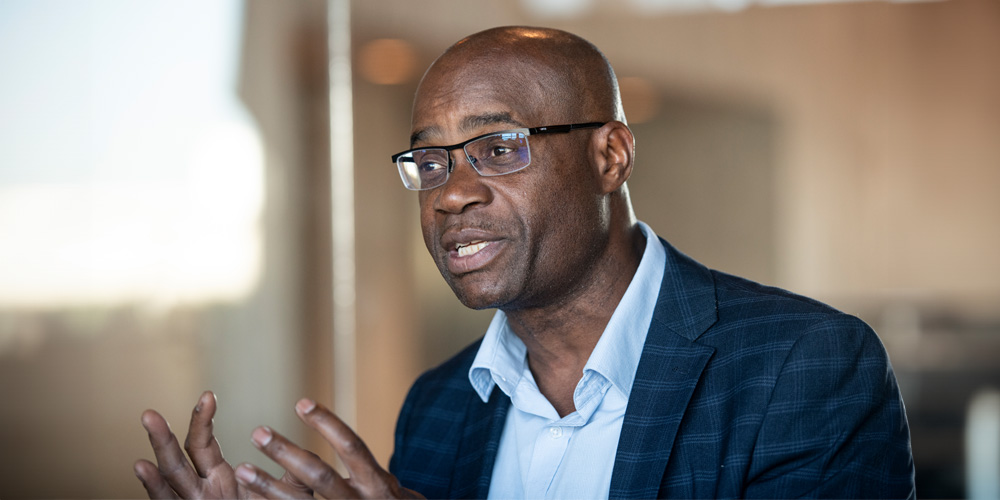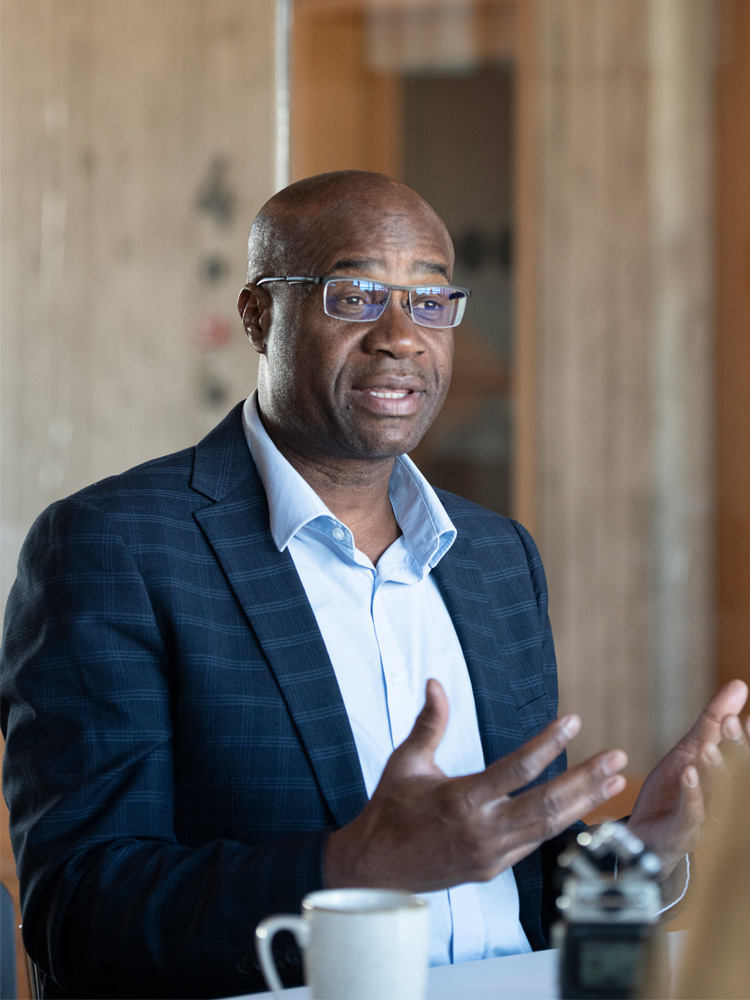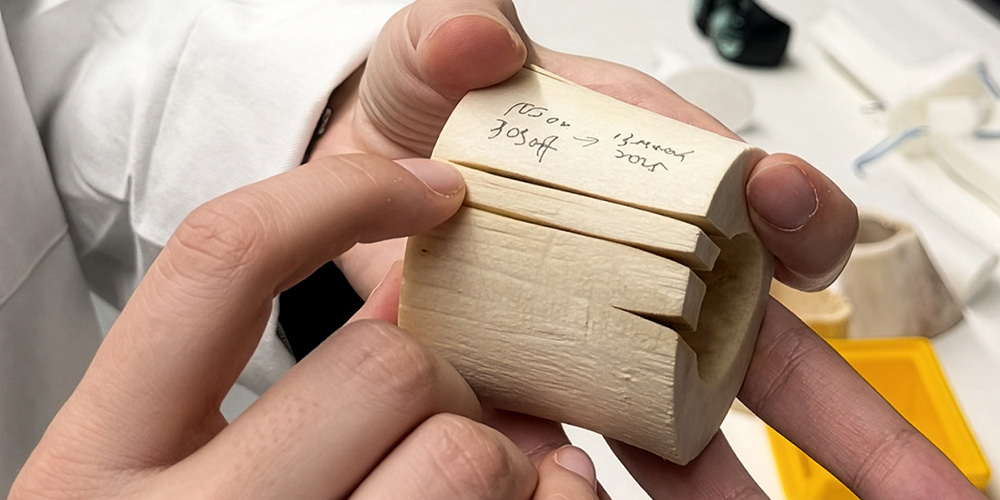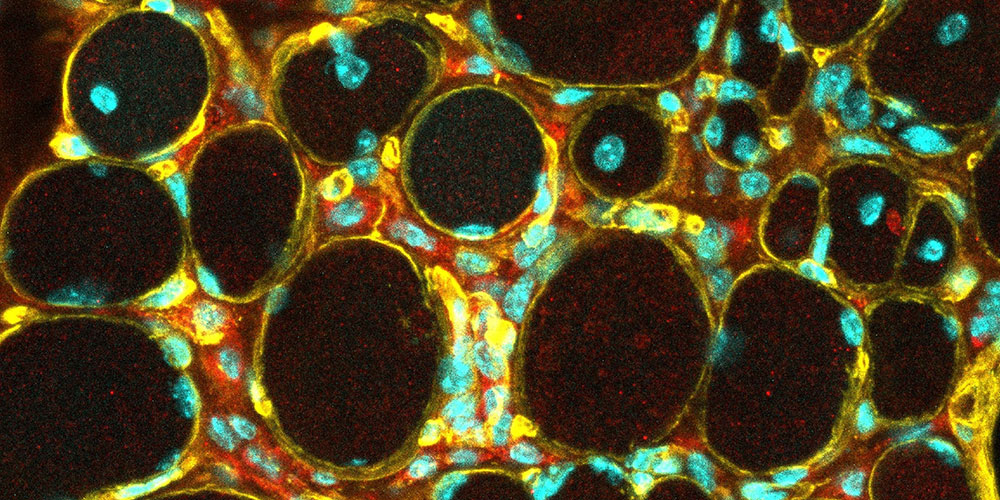“Science is not just for curiosity. Science helps to solve problems.”
The Science Faculty of the University of Basel awarded Prof Kelly Chibale (59) with an honorary doctorate for his contributions to the life-science-cluster in Basel. As a chemist he founded the Holistic Drug Discovery and Development (H3D) Center in Cape Town, South Africa, where he has successfully developed new anti-malaria drug candidates.
28 November 2023 | Interview: Christian Heuss
Kelly Chibale, what was your reaction when you received the news that you will get an honorary doctorate from the University of Basel?
I couldn’t believe it. It's a tremendous honor to receive an honorary doctorate from a University with such a high reputation. Before that, I was already privileged to be involved in the University of Basel’s Next Generation Scientist program in partnership with Novartis, where many of the participating scientists actually come from developing countries. I think this partnership of the University of Basel with industry and academia is a very powerful model.
You grew up in a township in Zambia. And one can say that you were not born into a scientific career. What sparked your interest to become a scientist?
My journey began indeed in a township in Zambia. The then government of our first president, the late Dr Kenneth Kaunda, made education accessible to everyone. This profoundly impacted my life. Many of us could not have afforded this kind of primary and higher education. Education was seen as a key to escaping poverty. My fascination with chemistry started in secondary school, spurred by an inspiring Indian teacher who explained the subject with such inspiration. That captivated me and I guess that was my first falling in love with chemistry.
What is it about chemistry, especially organic chemistry, that fascinates you until today?
For me, organic chemistry is a bit like architecture. Instead of houses, we build or modify molecules. Simple changes in an existing chemical structure can introduce new properties into molecules that can be beneficial for humans or for society. This is my fascination with organic chemistry – to improve certain properties for the good of human beings.
With a fellowship, you got the chance to move to Cambridge University, one of the most distinguished universities in the world, for your PhD. That must have been quite a shift. How did you navigate this change?
It was a significant transition, a shock, indeed. The cultural and academic differences were immense. Everything, from the weather to the food and the people, to the educational system, was very different from what I was used to. But I found something to aspire to, to bridge the gap. With the great support of my mentor, I adapted. If you have the option to sink or learn to swim, then the only choice is to stick it out. I knew that from where I came from.
Later in your career, despite opportunities in the US and the UK, you chose to return South Africa, to the University of Cape Town. This was a risky choice for your career as an aspiring scientist, wasn’t it?
Yes, indeed. Many said that this would be the end of my career. But for me it was a calling that is very hard to explain. During my visit to Cape Town for an interview, I felt an immediate connection. I saw an opportunity to contribute meaningfully in a region that resonated with my personal and professional goals. I thought I could make a real difference. But, honestly, I think I wasn't really sure what I was doing. It just felt right.
In 2007 you became a full professor at the University of Cape Town, and in 2010 you established the Holistic Drug Discovery and Development research center (H3D) in Cape Town. What is your vision for this research institution?
The way medicines are discovered today is by bringing together multiple disciplines. That is what we aimed to achieve from the beginning at H3D. With “holistic”, we mean a center that is an integrated platform for all the required technology platforms to move a project from the lab to the patient, including chemistry, biology, pharmacology, drug metabolism, etc. It is about bringing all the core disciplines together from the early drug discovery to clinical trials and collaborating internationally with other institutions for expertise that we are missing at H3D.
How significant is it for H3D that this institution is located in South Africa?
It is very important. First, there is a very strong link between the genetics of the population, the social and physical environment in which patients live and the treatment of disease. Therefore, it is a no-brainer to build drug discovery and development capabilities in close proximity to where people are to address their pressing medical needs.
Secondly, before H3D, the integrated early drug discovery process hardly ever took place in Africa. We started this in partnership with others. In the beginning, we only had expertise in chemistry. All the biology research, for example, came through working with international partners, such as the Swiss Tropical and Public Health Institute (Swiss TPH) in Basel. This collaboration was crucial and highly successful.
And third, this institution creates jobs not only within H3D but also externally. Seventy percent of our funding comes from overseas. We spend millions of dollars in the country, which also supports local business. That helps the local economy and its development. The message here is: we mustn’t always look to politicians to solve problems. We, as scientists, should take leadership and create an environment for entrepreneurship to flourish.
Do you also see yourself as a role model, especially for young African students and scientists?
Yes, indeed. I really believe in the power of role modeling. With the opportunities you get, you also receive a responsibility to achieve excellence in what you are doing. When I return to the townships where I come from, people say, there is someone who looks like me, who was able to achieve that. That says a lot.
Finally, what advice do you offer to aspiring scientists?
My advice centers on three key aspects: seizing every opportunity, maintaining consistency in your efforts, and recognizing your unique potential. Each person has a unique contribution to make, and it’s vital to nurture this individuality.




